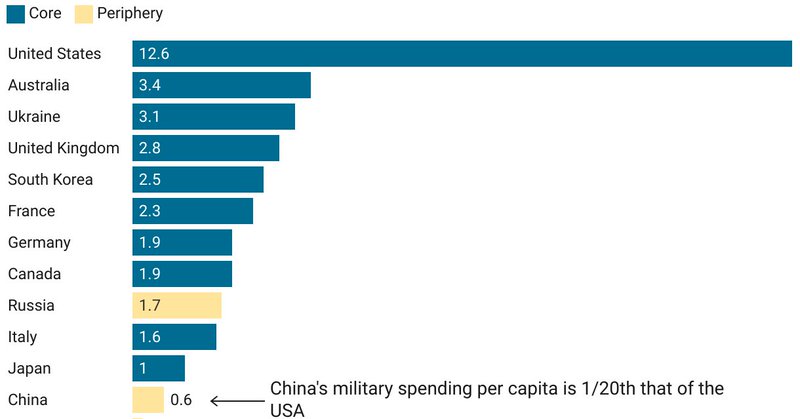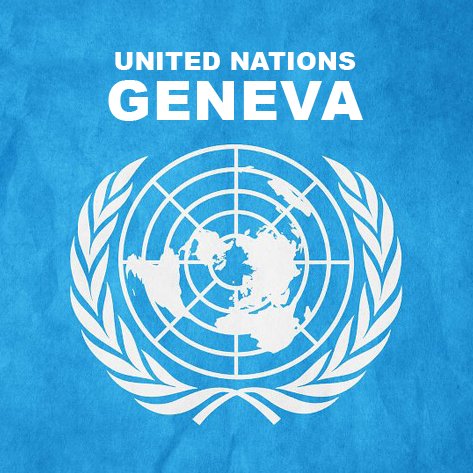
Jostein Hauge
@haugejostein
Followers
34K
Following
4K
Media
662
Statuses
4K
Political economist • Assistant Professor at Cambridge • Book: The Future of the Factory • Newsletter: https://t.co/4dDr0blbyn • Email: [email protected]
London, UK
Joined September 2013
I'm excited to share this paper we've just published on the new age of economic nationalism. In the paper, we analyse the convergence of industrial policy and national security in three global superpowers: the US, China, and the EU. The US has adopted a hawkish stance with
17
141
534
Note that many US-backed regime change operations were targeted against democracies. Here is the source of the chart:
globalinequality.org
6
13
56
The United States has become the greatest source of political instability in the world.
86
416
2K
Thanks to cheap EV imports from China, 76% of cars sold in Nepal are now electric. This is a very fascinating story of how China is helping one of the world’s poorest countries make its automotive sector fully electric.
20
145
588
Vietnam has become an export powerhouse. It’s going to be Asia’s next economic success story. There’s no doubt in my mind.
82
236
1K
One of my main issues with Western discourse on China is that it often assumes liberal democracy is the only path to state legitimacy, and the model every society around the world should adopt. China has built legitimacy differently: through delivering economic development.
42
81
420
Here's an overview of US industrial and trade policy since 2017 (compiled by Houtzager, Hoermann, and myself). As you can see, export controls have been central.
1
2
27
US trade policy is massively backfiring. US export controls on chips to China — especially Nvidia's AI chips — have been the hallmark of US trade policy. China's response: innovate faster. Now, in an ironic twist of events, China is banning the import of Nvidia's AI chips.
76
214
911
China is pouring billions into Brazil. From energy to mining to food security. But why now, and what does it mean for both economies? Watch as Tulio Cariello breaks down the surge and what’s driving Brazil’s growing importance to Beijing. Watch - https://t.co/YUbUnpfO1P
1
6
20
I'm not going to mince my words: the only people who support the actions of Israel's government at this point are sociopaths.
“It is clear there is an intent to destroy the Palestinians in Gaza through acts that meet the criteria set forth in the Genocide Convention.” UN Independent International Commission of Inquiry's report shows #Israel has committed #genocide in #Gaza. https://t.co/UGjepPwmwo
7
46
188
I can't stop thinking about 1 sentence in today's UN report regarding Israel's genocide in Gaza. "Israeli security forces shot at & killed civilians, including children who were holding makeshift white flags. Some children, including toddlers, were shot in the head by snipers.”
989
22K
56K
“It is clear there is an intent to destroy the Palestinians in Gaza through acts that meet the criteria set forth in the Genocide Convention.” UN Independent International Commission of Inquiry's report shows #Israel has committed #genocide in #Gaza. https://t.co/UGjepPwmwo
3K
22K
41K
China's rise is the biggest economic and political shift of the 21st century. I was on The Majority Report recently to talk about China's rise — and how it's fuelling a new wave of economic nationalism in the West. Link to the full interview in the replies.
9
14
103
China isn’t particularly interested in Africa’s natural resources — contrary to popular belief. Its interest in Africa is political. For some inexplicable reason, however, African countries aren’t exploiting this opportunity. A really insightful analysis by Eric Olander.
54
165
581
I don’t have an issue with Brad Setser’s charts — in fact, I find that he shares a great deal of useful macroeconomic data. What I do take issue with is the way Setser frames China’s rise. China is not an evil bogeyman intent on crushing the US economy. If anything, China's
China now accounts for something close to 2/3rds of the global surplus in goods surplus. The bulk of US service exports are to Ireland (& for financial services, to the Caymans). That tells you something important, but nothing about overcapacity
29
73
517
When Germany became an export powerhouse, it earned the nickname “exportweltmeister.” Now that China is becoming an export powerhouse, the same phenomenon is labelled “industrial overcapacity.” Of course, there are legitimate concerns about excess production in certain Chinese
45
212
976
In a world riven by inequality and devastated by climate + ecological crisis, what would it take for "green industrial policy" to empower the working class in Global North + South, and be truly green? New @cplusci report, by and @Isabel_Estevez_ & me 1/3 https://t.co/hf1t6bXEjV
2
40
99
Dear friends, On behalf of the @ProgIntl, I have now set sail for Gaza with the Global Sumud Flotilla: the largest humanitarian convoy in history to traverse the Mediterranean Sea with a mission to break the siege and deliver critical aid to the starving people of Palestine. I
513
3K
13K









